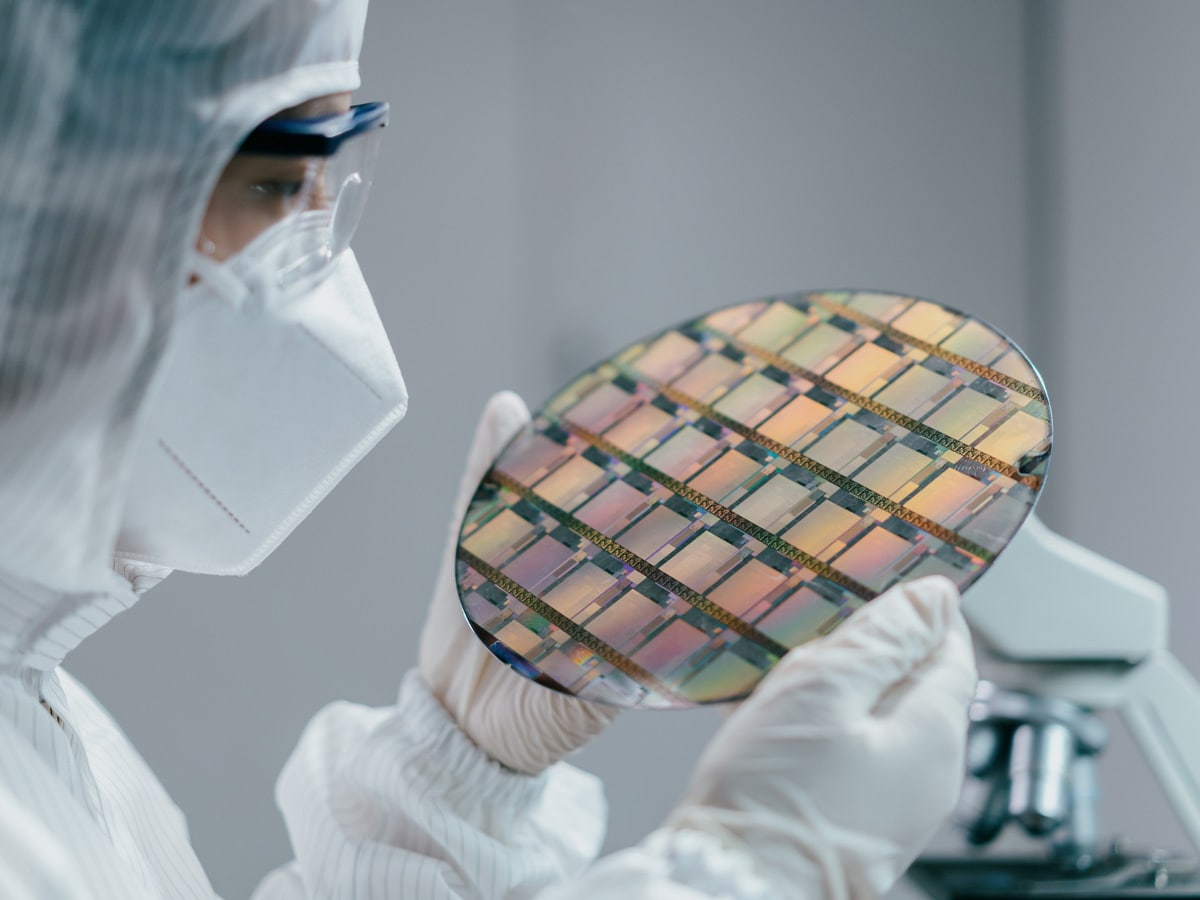
As IQE [IQE’L] prepares to report its half-year trading update on 6 September, the UK-based supplier of wafers and materials for the semiconductor industry has been caught in wider headwinds within the chipmaking industry.
The past year has been a turbulent time for semiconductor stocks, with the ongoing chip shortage causing continued challenges for manufacturers around the world. At the same time, the slowdown in computer and smartphone sales is placing added pressure on chipmakers.
On 30 August, Citi analyst Christopher Danley wrote in a research note that “we are entering the worst semiconductor downturn in a decade”, with even relatively strong industries like automotive manufacturing showing signs of a correction.
However, there may be opportunities for IQE as rising tensions between the US and China over Taiwan prompt countries like the UK to strengthen its domestic chipmaking industry, in the event of further supply chain disruption. Additionally, the company holds a sizeable market position in several types of wafers required for specialist products such as 3D sensors and 5G base stations. It also stands to benefit as these technologies become more widespread.
IQE share price outperforms peers
Compared with many of its peers in the semiconductor industry, the IQE share price has not suffered significant losses. Year-to-date as of 1 September, the stock was down 2.5%, while the iShares Semiconductor ETF [SOXX], which tracks some of the world’s largest chipmakers, was down 32.8% over the same period.
IQE shares rallied earlier this month despite a lack of any major news, reaching a 2022 intraday high of 45.28p on 1 August. While it has since fallen back to 33.7p on 1 September, the upcoming earnings could be a catalyst for the stock to make a recovery.
Despite uncertainty in the global chipmaking industry, analysts remain generally optimistic on the outlook for IQE ahead of its first-half update. According to the Financial Times, as of 25 August the stock has two ‘buy’ ratings, three ‘outperform’ and one ‘hold’, with a median price target of 62.5p, representing an 85.5% upside on its 1 September closing price.
IQE forecasts low 2022 revenue growth
IQE reported disappointing results in its full-year 2021 earnings on 29 March amid continued difficulties for the chipmaking industry. Revenues fell 13% year-over-year from £178m to £154m, and EBITDA was down 36.6% from £30m to £19m. The company also widened its operating losses from £6m to £20m, as capital expenditure grew from £5m to £15m. While IQE’s wireless and photonics businesses saw strong growth, revenue fell 12% and 17%, respectively, in 2021.
Despite the muted performance, IQE remained confident in its July trading. The company said at the time that it expects to report revenue of at least £85m, which would represent a 7% increase year-on-year, and is in line with the year-ago period’s revenue of £79.5m on a constant currency basis.
For the full year, IQE maintained its guidance for “low single digit” revenue growth, which is likely to be weighted towards the second half of the year. Analysts largely agree with this consensus: four analysts polled by the Financial Times offer a consensus estimate of £161.8m for full-year 2022, which would be a 5% increase on 2021.
Given the challenges ahead, IQE remains focused on the longer-term opportunities as supply chain issues ease. “The Group is focusing on executing the strategy of pursuing long-term sustained growth through diversification and value creation,” the company wrote in the trading update, adding that “further milestones are anticipated for H2 as the business is positioned for growth”.
UK falling behind the US and EU on chip policy
While IQE is yet to return to profitability, the company is at the forefront of technologies that are only likely to increase in importance in the years ahead. It holds a market-leading position in VCSEL wafer production, a key component used in 3D sensors, which play an important role in emerging themes such as the metaverse, the internet of things and augmented reality. Similarly, it is one of the largest producers of GaAs wafers, used for 5G mobile handsets, base stations and WiFi 6 routers, another area expected to grow significantly as 5G and 6G technologies continue to evolve.
Additionally, IQE may benefit from efforts from western countries to expand chipmaking capacity if geopolitical tensions between China and Taiwan – the latter of which is responsible for around 90% of the world’s most advanced semiconductors, according to a 2021 Boston Consulting Group report –cause further disruption to supply chains.
However, while the US and EU have both responded by ramping up domestic manufacturing – Europe passed a CHIPS Act that includes €43bn in subsidies and the US passed a similar bill with $52bn worth of grants for chipmakers – the UK may be falling behind. “The UK is behind … in terms of coming out with concrete policies to support the sector,” IQE’s chief executive, Americo Lemos, told the Financial Times in August.
Disclaimer: CMC Markets is an execution-only service provider. The material (whether or not it states any opinions) is for general information purposes only, and does not take into account your personal circumstances or objectives. Nothing in this material is (or should be considered to be) financial, investment or other advice on which reliance should be placed. No opinion given in the material constitutes a recommendation by CMC Markets or the author that any particular investment, security, transaction or investment strategy is suitable for any specific person. The material has not been prepared in accordance with legal requirements designed to promote the independence of investment research. Although we are not specifically prevented from dealing before providing this material, we do not seek to take advantage of the material prior to its dissemination.






















